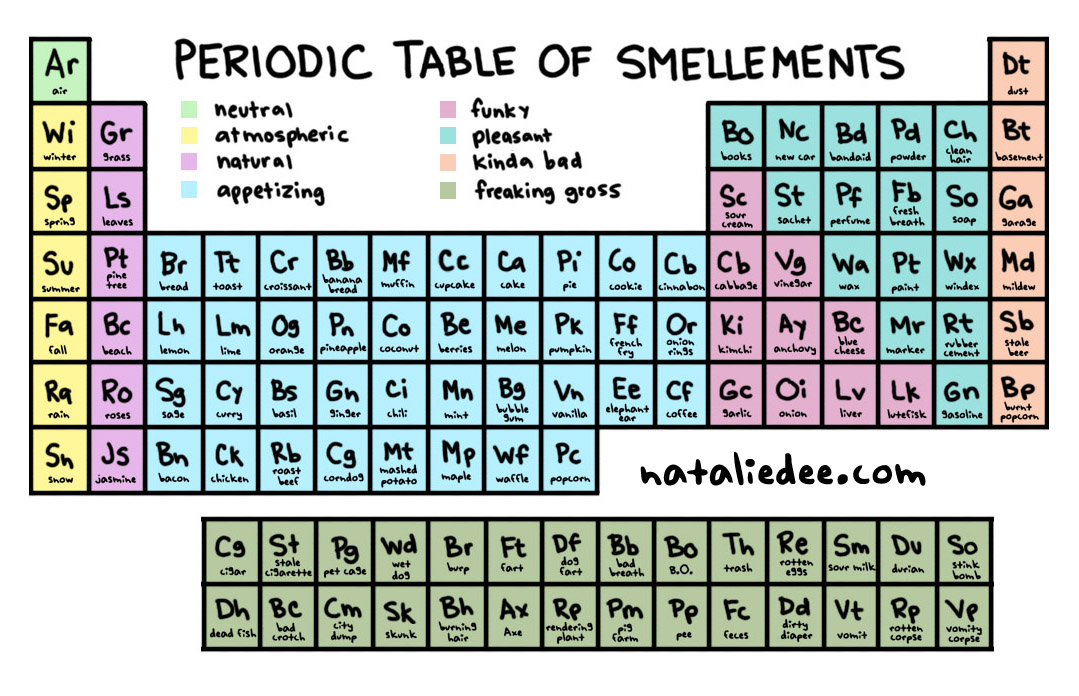Scent branding fascinates me. It seems so obvious. Appealing to all the senses – especially when taste is so related to smell. It’s like nailing two senses with one blow. I went to a tourism marketing seminar with Tom O’Toole, the owner of the Beechworth Bakery. One of the first things he did when turning the bakery into a landmark tourist attraction and nationally renowned bakery was to pump the smells from the kitchen out onto the street. I read elsewhere that fast food joints use similar strategies (which is why they always smell so good).
Smells effect us all. They trigger memories, comfort us, stimulate us, warn us off dodgy food… Jasmine is apparently as effective as valium. Smells are chemically complex – the aroma of your freshly ground pile of coffee can be formed by as many as 800 different aromatic compounds. Smell is powerful stuff – and besides food chains and deodorant manufacturers its been a pretty underutilised element of branding. Sure, we describe new purchases by their scent (cars, leather etc) – but this seems more a marker of quality than a factor in the purchase decision (though you wouldn’t buy a stinky new car). Scent marketers Air Aroma cite research that suggests that 75% of our daily emotions are triggered by smell.

The practice of creating artificial smells is pretty controversial (unless you’re a celebrity launching a perfume brand – ala Bruce Willis… because smelling like a sweaty male action figure is awesome.
Hotels have trademarked fragrances that get pumped into their lobbies and rooms take this little anecdote for example:
Since Le Méridien was founded in 1972 by Air France, Penot and Roschi took a very old copy of Antoine de Saint-Exupéry’s Le Petit Prince—the author was a pilot—and had the rich smell of the book’s pages analyzed. (Capturing the scents of familiar objects is quite standard in this industry, though presumably the choice of this particular old book for the testing was more whimsical then determinative.) They used the results to create a scent, which they took to Ziegler. She decided it would be Le Méridien’s signature fragrance, its olfactory logo.
Scent branding isn’t new, the article above dates its use in travel to the 1970s – it even has a name for the part of your brain that the method targets: “Singapore Airlines has a branded scent… used in all of its planes, a light sweet scent like pure steam from fresh rice. If you’re booking a flight…you’ll find it that much harder to go with the competition because the Singapore scent builds the brand in the limbic system.”
The future of the hotel industry will apparently involve us selecting a scent for our room at check in, and the room smelling of roses (or whatever we choose) by the time we get to the door. Some people see this practice as a form of subliminal manipulation, or have problems with the ethics of the perfume industry.
Natalie Dee, a designer, very usefully put together this periodic table of smellements – a grading of smells we find pleasant or noxious.

And, incidentally, it’s now possible, through the availability of precise scientific measuring tools like mass-spectrometers (made famous by NCIS), to analyse a person’s “scent print”…
“Florida International University chemist Kenneth Furton studies the smells that might be of greatest use in a crime investigation. These, he says, are the ones that come from the hands. (Murderers rarely wield weapons in their underarms.) For the last five years, Furton has been cataloging the many chemicals that compose hand scent, including odoriferous acids, alcohols, aldehydes, hydrocarbons, esters, ketones, and nitrogen-containing compounds.”
Robyn tells me that using aromatic oils in the classroom also helped moderate behaviour – lavender calmed the kids down, lemon and eucalyptus perked them up.
Which all adds up to a compelling case for harnessing smells in branding – but is this an area churches should be playing in? Should we install ventilation systems dedicated to pumping the odour of a well read bible through the auditorium at reading time? Should we be pumping the smell of morning tea onto the street to entice people in on a Sunday? What smell do you think captures, or enhances the church experience? What did Jesus smell like? A mix of sawdust, dirt, and after his anointing a liberal dash of perfume. Was that the first case of scent branding?


